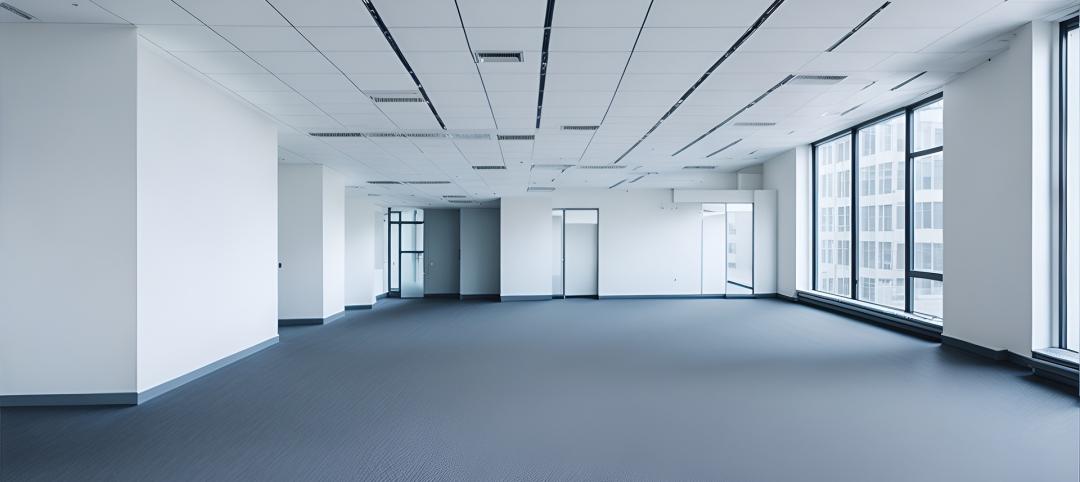The U.S. housing recovery should regain its footing, but also faces a number of challenges, concludes The State of the Nation’s Housing report released by the Joint Center for Housing Studies of Harvard University. Tight credit, still elevated unemployment, and mounting student loan debt among young Americans are moderating growth and keeping millennials and other first-time homebuyers out of the market.
“The housing recovery is following the path of the broader economy,” says Chris Herbert, research director at the Joint Center for Housing Studies. “As long as the economy remains on the path of slow, but steady improvement, housing should follow suit.”
Although the housing industry saw notable increases in construction, home prices, and sales in 2013, household growth has yet to fully recover from the effects of the recession. Young Americans, saddled with higher-than-ever student loan debt and falling incomes, continue to live with their parents. Indeed, some 2.1 million more adults in their 20s lived with their parents last year, and student loan balances increased by $114 billion.
Still, given the sheer volume of young adults coming of age, the number of households in their 30s should increase by 2.7 million over the coming decade, which should boost demand for new housing. “Ultimately, the large millennial generation will make their presence felt in the owner-occupied market,” says Daniel McCue, research manager of the Joint Center, “just as they already have in the rental market, where demand is strong, rents are rising, construction is robust, and property values increased by double digits for the fourth consecutive year in 2013.”
One key to realizing the millennials’ potential in the housing market is for the economy to grow to the point where their incomes start to rise. Another important factor is how potential GSE reform will affect the cost and availability of mortgage credit for the next generation of homebuyers, which will be the most diverse in the nation’s history. By 2025, minorities will make up 36 percent of all US households and 46 percent of those aged 25–34, thus accounting for nearly half of the typical first-time homebuyer market.
The report, as well as an interactive map released by the Joint Center, also highlights the ongoing affordability challenge facing the country, as cost burdens remain near record levels and over 35 percent of Americans spend more than 30 percent of their income for housing. The situation is particularly grim for renters, where 50 percent are cost burdened and 28 percent are severely cost burdened (meaning they spend over half of their income for housing).
“When available, federal rental subsidies make a significant difference in the quality of life for those struggling the most,” says Herbert. “Between 2007 and 2011, the number of Americans eligible for assistance rose by 3.3 million, while the number of assisted housing units was essentially unchanged. Sequestration forced further cuts in housing assistance, which have yet to be reversed.”
Related Stories
Adaptive Reuse | Sep 12, 2024
White paper on office-to-residential conversions released by IAPMO
IAPMO has published a new white paper titled “Adaptive Reuse: Converting Offices to Multi-Residential Family,” a comprehensive analysis of addressing housing shortages through the conversion of office spaces into residential units.
Mixed-Use | Sep 10, 2024
Centennial Yards, a $5 billion mixed-use development in downtown Atlanta, tops out its first residential tower
Centennial Yards Company has topped out The Mitchell, the first residential tower of Centennial Yards, a $5 billion mixed-use development in downtown Atlanta. Construction of the apartment building is expected to be complete by the middle of next year, with first move-ins slated for summer 2025.
Healthcare Facilities | Sep 9, 2024
Exploring the cutting edge of neuroscience facility design
BWBR Communications Specialist Amanda Fisher shares the unique considerations and challenges of designing neuroscience facilities.
Office Buildings | Sep 6, 2024
Fact sheet outlines benefits, challenges of thermal energy storage for commercial buildings
A U.S. Dept. of Energy document discusses the benefits and challenges of thermal energy storage for commercial buildings. The document explains how the various types of thermal energy storage technologies work, where their installation is most beneficial, and some practical considerations around installations.
Office Buildings | Sep 5, 2024
Office space downsizing trend appears to be past peak
The office downsizing trend may be past its peak, according to a CBRE survey of 225 companies with offices in the U.S., Canada, and Latin America. Just 37% of companies plan to shrink their office space this year compared to 57% last year, the survey found.
University Buildings | Sep 4, 2024
UC San Diego’s new Multidisciplinary Life Sciences Building will support research and teaching in both health and biological sciences
The University of California San Diego has approved plans for a new Multidisciplinary Life Sciences Building, with construction starting this fall. The 200,000-sf, six-level facility will be the first building on the UC San Diego campus to bridge health science research with biological science research and teaching.
Codes and Standards | Sep 3, 2024
Atlanta aims to crack down on blighted properties with new tax
A new Atlanta law is intended to crack down on absentee landlords including commercial property owners and clean up neglected properties. The “Blight Tax” allows city officials to put levies on blighted property owners up to 25 times higher than current millage rates.
Resiliency | Sep 3, 2024
Phius introduces retrofit standard for more resilient buildings
Phius recently released, REVIVE 2024, a retrofit standard for more resilient buildings. The standard focuses on resilience against grid outages by ensuring structures remain habitable for at least a week during extreme weather events.
Construction Costs | Sep 2, 2024
Construction material decreases level out, but some increases are expected to continue for the balance Q3 2024
The Q3 2024 Quarterly Construction Insights Report from Gordian examines the numerous variables that influence material pricing, including geography, global events and commodity volatility. Gordian and subject matter experts examine fluctuations in costs, their likely causes, and offer predictions about where pricing is likely to go from here. Here is a sampling of the report’s contents.
Adaptive Reuse | Aug 29, 2024
More than 1.2 billion sf of office space have strong potential for residential conversion
More than 1.2 billion sf of U.S. office space—14.8% of the nation’s total—have strong potential for conversion to residential use, according to real estate software and services firm Yardi. Yardi’s new Conversion Feasibility Index scores office buildings on their suitability for multifamily conversion.

















